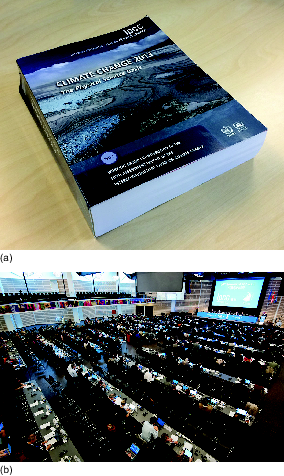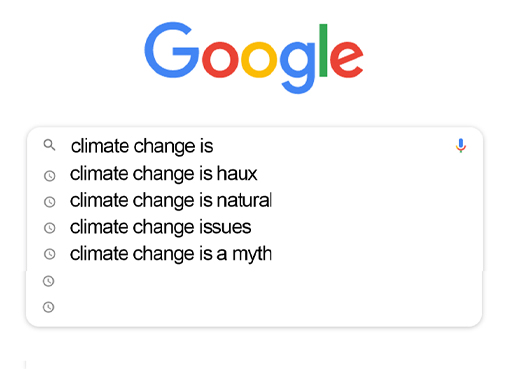1 Trusting sources of information
Google Search is currently the world’s most popular search engine. It has an autocomplete service that provides suggestions when searching the web.
The search terms suggested to you by Google depend on the public popularity of terms, the region you are in, your personal search history, and other factors such as current news events. Google is predicting what you might want to know.
Activity 1 Searching for climate change
Put the words ‘climate change is’ into your Google search engine. Make a note of the auto-suggested search terms that are presented (you might like to take a screenshot).
Do another search for the phrase ‘global warming is’. Again, make a note or take a screenshot of the auto-suggested search results.
How do the auto-suggested search terms compare with each other for the two phrases? Are the terms positive, negative or neutral?
How objective would you say this information is, and could climate scientists ‘trust’ these suggestions as a source of data?
Discussion
Figure 1 displays results from February 2015 in which nearly all of the terms were negative, including ‘global warming is a myth’.
It is always worth reflecting on the objectivity – or otherwise – of internet searches, and how the results you find are influenced by others.
You could also try searching on different search engines or devices, or repeat the searches at a later date. Do you get different results?
The internet is a source of huge amounts of information on the climate crisis, but it can be difficult to determine whether information is reliable.
Climate scientists, and policymakers who use climate science, very often refer to the reports of the Intergovernmental Panel on Climate Change (IPCC) for authoritative summaries of current knowledge about climate change. The IPCC publishes assessment reports about every six years. These reports are written by the many hundreds of natural scientists, social scientists, economists and technical experts engaged in research related to climate change. IPCC assessment reports are extremely comprehensive (Figure 2), taking several years to put together. However, they are written in a way that is not very accessible to non-experts.

Throughout this course, you will look at highlights from the IPCC Fifth Assessment Report, which was published in 2013–14. You will also see some ways in which people have communicated this same climate science in a more accessible way.

